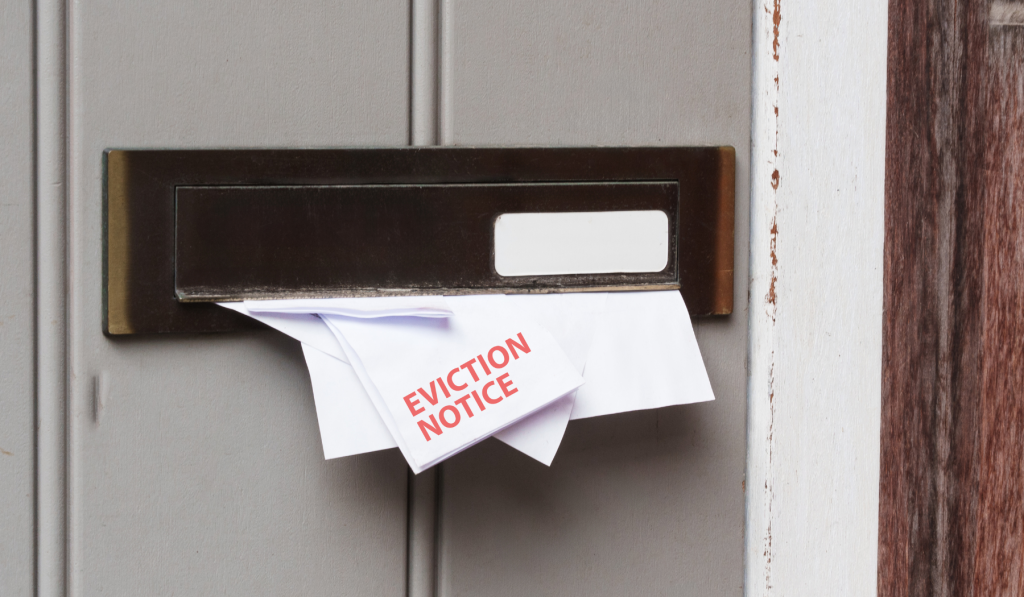Being a landlord is a great investment. It can be an enjoyable venture when you have a good relationship with your tenants. However, when an eviction is required, the support of an expert is necessary to protect your legal interests, finances, and property.
What is an Eviction?
An eviction is a legal proceeding where the landlord seeks to reclaim their rental property and the tenant must vacate the premises.
There are specific circumstances where the landlord has the right to evict a tenant. This depends on whether the eviction is a section 8 notice or a section 21 eviction notice. It can take anywhere between 14 days to a few months to evict a tenant.
It is important to remember the statutory rights of the tenant. This includes the right to quiet enjoyment of the property. Even if a tenant has breached the terms of the tenancy, these rights remain.
This means a landlord is not entitled to show up at the property when they please or impede on the tenant’s rights. Otherwise, the tenant may be able to counterclaim, which can lead to them being able to stay in the property or receiving financial compensation.
How to Start an Eviction Process
An eviction starts by providing the tenant with a legal notice. The number of months notice you must give depends on whether the eviction is a section 8 or 21:
A Section 8 eviction is when a tenant has breached their tenancy agreement. For example, through rent arrears (not paying rent), causing damage to the property, or antisocial behaviour. You must provide a reason for the eviction, and the tenant can dispute this.
A Section 21 eviction is an order for the landlord to regain possession of their property. This can be at the end of a fixed-term tenancy, or during an ongoing tenancy. You do not have to state why you are issuing a possession order for your property.
The eviction notice can be delivered personally, or via recorded delivery mail.

What to Do if a Tenant does not Vacate a Property After an Eviction Notice has Been Given
Court proceedings
If the date in your eviction notice arrives and the tenant has not left the property, you will need to begin court proceedings and attend a hearing.
Typically, an ‘order for possession’ will be given, meaning the tenant must vacate the property by the date provided.
Warrant for possessions
If the tenant fails to leave the property by the date given in the court proceeding, you can apply for a ‘warrant for possession’ (a country court Bailiff).
This will issue a warrant number, with which the court will make a bailiff appointment. Then, the bailiff can evict the tenant and remove them from the property.
What do Tenant Eviction Specialists do?
Tenant eviction specialists are experts in managing evictions on behalf of landlords.
The main responsibilities of a tenant eviction specialist may include:
- Conducting background checks on the tenant(s)
- Drafting tenancy agreements
- Serving notices to tenants
- Representing landlords in court and possession proceedings
- Ensuring legal requirements are met throughout the eviction process
- Acting as a mediator between landlords and tenants
- Negotiating settlement agreements on behalf of landlords
- Reviewing rental agreements
- Advising on how to handle difficult tenants

When to Use a Tenant Eviction Specialist
Before working with a tenant eviction service, you need to obtain a possession order from the county court. Once this claim for possession has been warranted, you can then work with an eviction specialist.
The eviction specialist should have expertise in legal procedures and a deep understanding of tenancy laws and regulations. They will be able to navigate complex legal processes.
If you are dealing with a complex case or trying to handle the eviction alone, a specialist will help to minimise the risk of mistakes and costly delays.
If you need to evict a tenant quickly, a specialist has the knowledge, skills, and resources to resolve disputes efficiently and effectively. This leads to a quicker resolution, and more timely eviction.
Eviction proceedings can involve court fees and bailiff charges. An eviction specialist will ensure a successful resolution is reached without unexpected expenses.
Advantages of Working with a Professional Eviction Service
There are many advantages to working with a professional eviction specialist:
- Tenant eviction specialists can navigate the process quickly whilst protecting your rights as a landlord
- Actions will be conducted in compliance with the law, so you do not need to question if you are taking the right measures
- Working with a specialist can encourage the compliance of tenants as they are required to respond to a legal service
- Expertise will help avoid costly mistakes, as your specialist will be familiar with the process
- Evicting tenants can be emotionally challenging to landlords. An eviction service helps distance yourself and reduce involvement with the tenants
Get Support for your Tenant Eviction with Able Investigations
Your eviction specialist should have a reputable and trusted solution. Able Investigations offers a regulated and qualified eviction service, and we specialise in overseeing and handling tenant eviction processes on behalf of landlords.
As specialists for evicting tenants, we work with local authorities, commercial and private landlords, land agents, and a range of other clients on a variety of eviction cases, including tenant evictions.
We can provide bailiff services, and provide High Court Enforcement Officers, ensuring your eviction is carried out legally, and is documented along the way.
If you need help or advice on commercial or residential tenant eviction services, please contact us today for more information.

Comments are closed.